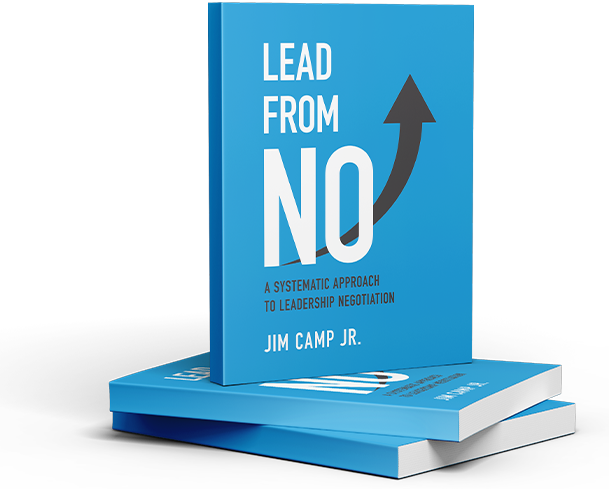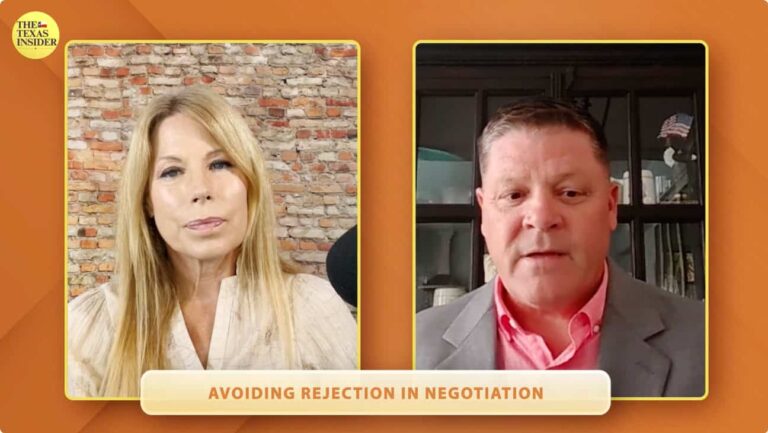Some clients had problems with the late Jim Camp’s words after ten minutes of his coaching.
They didn’t like Camp’s use of the phrases “respected adversary” or “respected opponent” when he referred to the person on the other side of the table. “Negotiation isn’t a war,” they rebutted.
Why didn’t Jim use words like friend, buddy, or partner?
This isn’t war here, but why in the world of negotiation would Camp ever choose abrasive or divisive words?
It boils down to the reason why you are negotiating, which Camp Coach Dave DeSantis drills into this 5-minute, unscripted lesson for you.
A client of ours said, “Although I’ve learned much from Camp, Voss, Ury, and others, I never connected it like that. I never could voice this lesson as simply as Dave did.”
Listen here:
Prefer to read? Here’s the transcript:
Why do we use the words “adversary” or “respected opponent” when we’re so conditioned in negotiation to think that we’re all working together towards common goals?
Well, the truth is we’re really not working together towards common goals.
What we’re trying to do is solve problems.
One side has something that’s not in their control and is looking for the other side to help them. And the side who’s helping is trying to provide some kind of service or product that solves problems in return for some kind of compensation, whether that’s time, energy, money, or emotional feedback that will help them.
So in that sense, we’re not working towards exactly the same thing. One side is trying to solve a problem. And one side is trying to offer their solutions to people who appreciate them and will pay them in return for it.
Partner or Friend
We never want to forget that we have many times in negotiation when people bring up the fact that we should look at them as partners or as friends.
But the truth is we’re not friends. We’re just people trying to identify problems and solve problems. And in the act of solving those problems, we’re going to have to commit some resources to do that. In terms of, again, – time, energy, money, emotion, or technology, whatever we have. But for us to be able to do that, we’re going to need something in return.
We’re going to make sure that we get at least as much in return as what it costs us to provide that service. Realistically, we need to get more in return than what it costs because we need to continue to invest in the future if we want to do this for people in the long term.
There’s no reason for us to do it if all we ever receive back is the cost of us preparing the solution. So in that sense, we are a little adversarial in that we’re trying to get back, for the service and products that we provide, a little bit more than it costs us to create them. Now, you may say, well, I will try to get as much as I can and I’ll be greedy.
The Balance
Well, the truth is we have a market that kind of balances that. Most of us are in fields where there’s competition and the competition is going to put some natural limits on how much we can get for something. That being said, not every competitor has exactly the same product you do. So it’s very important for you to differentiate what makes you special and to get full value for that special uniqueness you bring.
To do that you’re constantly creating vision or creating the perception of reality for your opponent on the other side of the table. Then they can actually see what you’re bringing to the table and how that’s helping them solve their problem. So if their problem is worth $10 million to them, what’s a fair and equitable return for you to help them solve the problem?
Maybe it’s $9 million. Maybe it’s eight, maybe it’s five. I’m not sure. The value that you’re going to get back is going to be a function of what the competition or the marketplace is going to dictate. Plus how much you want to expand your market share, continue to grow, and satisfy what you need to do for your business to continue to invest and move forward.
In this sense, we really have to think of the person on the other side of the table – the person you’re trying to help – as your respected opponent, because they’re looking to solve problems and get things that you’re not: they’re looking to do things that are particular to them.
What you’re trying to do is get a return from them, comparable to the problem they’re solving, not the cost or the effort that you put into creating the solution to their problem.
****
Throughout negotiations, we treat the other side with respect, that’s why in our urgent help and coaching we refer to them as our “respected opponents.”





